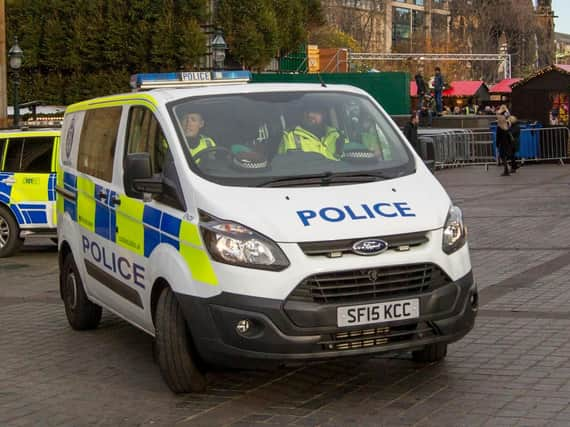Police trialing controversial facial recognition in public streets despite privacy concerns


The Metropolitan Police is planning to carry out tests of controversial live facial recognition technology in Romford in London on Thursday and Friday, as the force explores new ways to deter crime.
Both days round off the Metropolitan Police Service's trials across the capital, having previously tested the technology in areas including Soho, Piccadilly Circus and Leicester Square.
Advertisement
Hide AdAdvertisement
Hide AdThe Met said it will test out the live facial recognition technology overtly in Romford town centre for about eight hours each day, and will be making the public aware with a uniformed presence, handing out information leaflets and displaying posters.
In theory, the technology could come to other forces in future.
A spokesman for the Met said: "The Met is currently developing the use of live facial recognition and our trial period is coming to an end," said detective chief superintendent Ivan Balhatchet, strategic lead for live facial technology.
"Tackling violent crime is a key priority for the Met and we are determined to use all emerging technology available to support standard policing activity and help protect our communities.
Advertisement
Hide AdAdvertisement
Hide Ad"The technology being tested in this trial is developing all the time and has the potential to be invaluable to day-to-day policing."
The trial in Westminster in December last year led to two arrests as a result of the system identifying individuals wanted in connection with violent offences, Mr Balhatchet added.
A full, independent evaluation of the deployments and technology itself will be carried out once the final trials in Romford have been completed.
Privacy rights group Big Brother Watch has previously called the technology "dangerous" and argues that it is a "breach of fundamental rights to privacy and freedom of speech and assembly", but the police say people can decline to be scanned without arousing suspicion.
Advertisement
Hide AdAdvertisement
Hide AdThe Metropolitan Police hopes live facial recognition technology will help reduce crime, especially violent incidents, and could be used as a tactic to deter people from offending.
They claim trialling the system in real life conditions will enable them to gather accurate data and learn as much as possible.